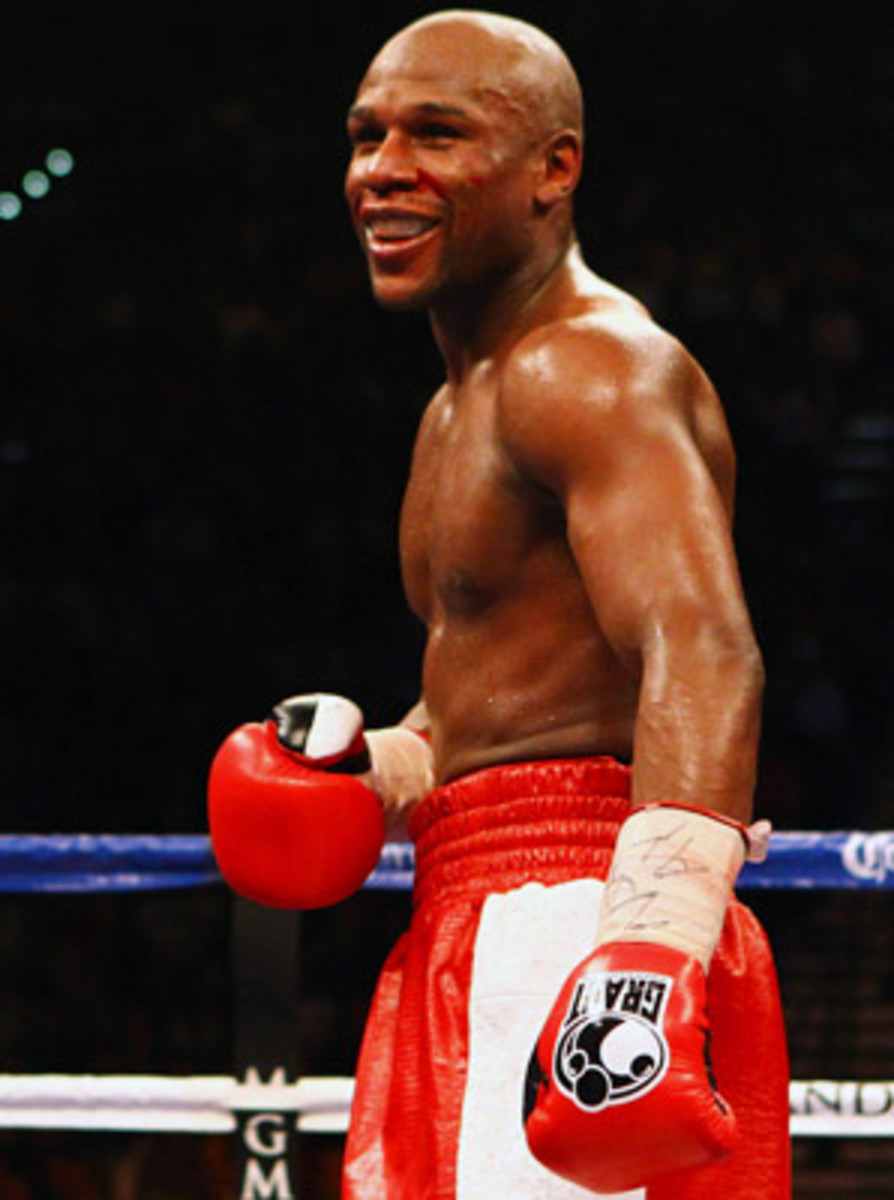Mayweather's latest fight with the law could send him back to jail
Has Floyd Mayweather, Jr., who was released from jail in August, violated the terms of his probation? If so, could the WBC welterweight champion be sent back to jail?
Last week, Las Vegas police investigated an alleged verbal altercation between Mayweather and an unidentified woman in a home owned by one of Mayweather's companies. According to records obtained by the Las Vegas Review-Journal, Mayweather apparently argued with the woman, took personal possessions from her, and then later had an associate return the items he took. Although she was not identified as the woman in question, Melissa Brim, the mother of one of Mayweather's daughter, reportedly lives at this address. In 2002, Mayweather pleaded guilty to domestic violence charges stemming from an altercation with Brim.
Mayweather has had a long year dealing with the court system. In December 2011, he pleaded guilty to misdemeanor domestic violence and harassment charges. Mayweather had been facing up to 34 years in prison on felony charges relating to an incident in which he allegedly grabbed and threw his ex-girlfriend, Josie Harris, and then threatened to kill her as their children watched. Las Vegas Justice of the Peace Melissa Saragosa sentenced Mayweather to six months of jail, with three of the months suspended. Mayweather was ordered to serve the remaining three months, but he would serve just two before an early release for good behavior.
Mayweather's release from jail was not without strings. His release is "supervised" and "probationary" for one year, with Mayweather having to prove that he can function as a law-abiding citizen. Probation imposes numerous life restrictions, including regular meetings with a probation officer, drug tests and avoiding committing crimes.
In fairness to Mayweather, police did not uncover evidence of physical violence and he has not been charged with a crime. But that may not matter. The typical test for violating probation would not require Mayweather to be convicted of a crime or even get arrested. Instead, merely spending time with known criminals or traveling to locations deemed off-limits by the terms of probation can be enough. Considering Mayweather's history with Brim, there's reason to believe his probation compels him to avoid conflict with her. Mayweather's alleged dispossession of the woman's personal belongings might also be grounds for violating probation.
If Mayweather's probation officer believes he violated the terms of the probation, Mayweather would be arrested and likely incarcerated while he awaits a hearing before a judge. If a judge determines that Mayweather violated the terms of his probation, Mayweather could be required to complete the remainder of his original six-month sentence. Although such a sentence may not interfere with the scheduling of any fights next year, it would clearly impact Mayweather's conditioning.
While the potential for Mayweather to be sent back to jail is real, he has received favorable legal treatment in Las Vegas courts. Recall that in January, Judge Saragosa allowed Mayweather to delay his reporting to jail so that he could fight Miguel Cotto in a major prize fight that would generate millions of dollars for Las Vegas businesses. While it is not unprecedented for a convicted defendant to receive a work-related delay in reporting to jail, the justification offered by Mayweather's attorney for the delay -- that the fight would generate more than $100 million to the Las Vegas economy -- was unusual and obviously not available to most who await sentencing.
Mayweather's legal headaches are not limited to the possibility of further time behind bars. Earlier this week U.S. District Judge Larry Hicks ruled he has to pay Manny Pacquiao $114,000 as part of Pacquiao's defamation lawsuit. In his lawsuit, Pacquiao claims that Mayweather defamed him when suggesting that Pacquiao uses performance-enhancing drugs. Mayweather has been uncooperative as a defendant by not appearing for his court-ordered deposition.
It remains to be seen what will be the next chapter in the seemingly never-ending Mayweather legal saga.
Michael McCann is director of the Sports Law Institute at Vermont Law School, a visiting professor at University of New Hampshire School of Law, and the distinguished visiting Hall of Fame Professor of Law at Mississippi College School of Law. He also serves as NBA TV's On-Air Legal Analyst. Follow him on Twitter.






